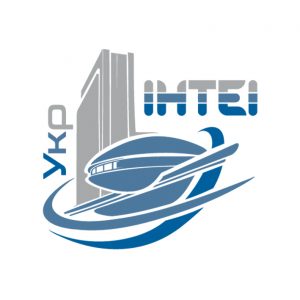http://doi.org/10.35668/2520-6524-2019-4-09
Huseynova Arzu Dogru gizi — Doctor of Economics, Director of the Institute for Scientific Research of Economic Reforms of the Ministry of Economy of the Republic of Azerbaijan, Prospect H. Zardabi, 88a, Baku, Azerbaijan, AZ 1011; + (99455) 7853536; doqru@yandex.ru; ORCID: 0000-0002-0981-9923
ELECTRONIC SERVICES DEVELOPMENT TRENDS
Abstract. The article considers the concepts of “electronic services” and “electronic government”, the basic principles and significance of “electronic government”, analyzes the “Electronic government” and “electronic services” in Azerbaijan. Trends in the development of electronic services, the structure of the state standard for the quality of electronic services are given. Today, with the use of information and communication technologies (ICT), the concept of “electronic services” is widely used (increasing efficiency, simplifying communication between the public and the state). At the same time, electronic services are considered one of the most effective tools to ensure transparency and prevent corruption. The aim of the article is to analyze the concepts of “electronic government” and “electronic services” in Azerbaijan. The development trends of electronic services are described. The author analyzing the most frequently used services identified the main scope of the electronic services provided. This is e-commerce, banking, media and distance education. The main problem in the work of the system of rendering state electronic services is the lack of preparedness of the population for this system. The implementation of the tasks of domestic and foreign policy provides for the creation of the most favorable conditions for the development of electronic services. A clear architecture for the provision of electronic services has been created in Azerbaijan. In this context, government agencies are gradually merging with new services in this architecture. According to the author, a single state of e-government should be a standard for the quality of electronic services and the basis for standardizing state electronic services is the demand for information and technical support for the process of providing electronic services and their quality. At the end of the article, the author gives a structure of quality standards for the state electronic service. According to the author, the development of the quality standards system for state electronic services should be aimed at improving the quality of the provision of state electronic services and optimizing the budget costs of authorized e-government bodies.
Key words: digital economy; information society; e-government; electronic services; trends in the development of electronic services.
REFERENCES
- Ofitsialnyi internet sait Prezidenta Azerbaydzhanskoy Respubliki [The official website of the President of the Republic of Azerbaijan]. Retrieved from: https://ru.president.az/.
- Guseynova, A., Nadzhafov, S. (2019). Novaya ekonomika KHKH veka ili tsifrovizatsiya ekonomiki? [The new economy of the XXI century or the digitalization of the economy?]. Postroyeniye informatsionnogo obshchestva: resursy i tekhnologii [Building an Information Society: Resources and Technologies]. Kyiv.
- Issledovaniya OON na temu “Elektronnoye pravitelstvo”: 2018 Primeneniye elektronnogo pravitelstva dlya formirovaniya ustoychivogo i gibkogo obshchestva [UN studies on the topic of “Egovernment”: 2018 The use of egovernment to create a sustainable and flexible society]. (2018). Retrieved from: publicadministration.un.org.
- The World Bank. World Bank Country and Lending Groups. Retrieved from: https://datahelpdesk.worldbank.org/knowledgebase/articles/906519.
- Huseynova, A., & Mazanova, O. (2016). Model evaluation of an Innovative Capital. 2016 IEEE 10TH International Conference on Application of Information and Communication Technologies (AICT). 607–609. https://doi.org/10.1109/icaict.2016.7991775
- The Digital Economy and Society Index (DESI). European Commission. Retrieved from: http://ec.europa.eu/digitalsinglemarket/en/desi.
- IMD World Digital Competitiveness Ranking 2017 (2017). IMD World Competitiveness Center. 180 p.
- Portal elektronnogo pravitelstva [The portal of electronic government]. Retrieved from: https://www.egov.az/.
- Retrieved from: http://www.eqanun.az/.

